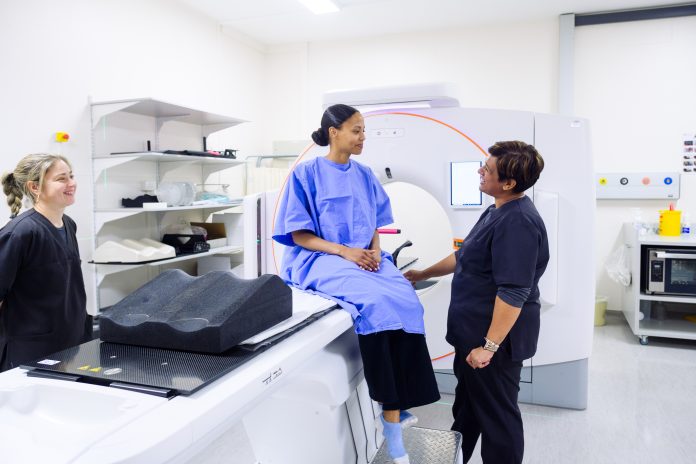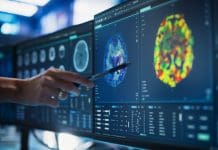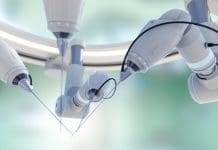If technology seeks to transform oncology practice, it must solve three big needs: data, training and trust. Annemiek Snoeckx, Co-Chair of the Digital Health Network at the European Cancer Organisation, explains
In recent years, the convergence of Artificial Intelligence (AI) and advanced data systems has brought about a paradigm shift in the delivery of healthcare, particularly in oncology. As the digital transformation touches every aspect of our lives, cancer care is equally undergoing a profound evolution powered by scientific progress and policy change, increasingly aligning itself with the promise of AI-driven healthcare.
However, the journey from promise to practice has many challenges. While AI offers the potential to transform every stage of the cancer care continuum – from prevention and early detection to diagnosis, treatment, and survivorship – its successful integration into healthcare systems requires deliberate policy choices, critical evaluation, and sustained investment in workforce readiness.
A case for AI in cancer early detection, screening and diagnosis
One of the most impactful applications of AI in oncology lies in early detection, screening and diagnosis through medical imaging.
Among AI algorithms, there are two that excel at identifying subtle details in the vast amounts of medical information and patterns beyond the perceptual and cognitive capabilities of the human brain.
- Those based on Machine Learning – a type of AI where computers learn from data to make predictions; and
- Deep learning algorithms – a subset of Machine Learning that uses layered networks, similar to the human brain, to understand complex patterns in large data sets.
Sybil, for example, is a deep learning AI model that has shown remarkable accuracy in forecasting the likelihood of lung cancer years in advance, even before radiological signs appear and are detected by experts. Such tools, once rigorously validated in clinical trials, have the potential to revolutionise screening protocols and offer a new dimension to preventive care.
Similarly, the Clinical Histopathology Imaging Evaluation Foundation (CHIEF) model takes advantage of AI’s multifaceted role in cancer care to analyse tissue samples across 19 different cancer types. CHIEF assists clinicians in diagnosing malignancies, predicting outcomes, and informing personalised treatment plans.
Overall, AI algorithms hold significant potential, not only in detecting and diagnosing cancer early but also in enhancing cancer treatment through more precise and personalised therapies and supporting patients and their relatives throughout their journey in the cancer care continuum by monitoring health outcomes, managing long-term side effects, and improving overall quality of life.
The importance of data to train and validate AI systems
The efficacy of AI in cancer care heavily relies on the data upon which it is trained. Representative, high-quality, and interoperable datasets are essential to ensure that AI models perform well and are reliable across diverse patient populations.
In this context, the European Health Data Space (EHDS) is pivotal in enabling the secondary use of health data for research and training. Projects co-funded by the European Union, such as CANDLE and EUCAIM, operate in this framework to transform policy into practice, facilitating the safe and ethical sharing of cancer images and data among EU Member States.
These initiatives and many others can create a federated data infrastructure where cancer researchers, oncology practitioners and AI developers can collaborate efficiently. For AI to realise its full potential in health and cancer care, it will be critical to create harmonised standards for data governance and ensure that AI models are subject to continuous evaluation and oversight.
AI literacy in the healthcare workforce
Another essential factor for expanding AI in healthcare: helping cancer professionals to prepare for what’s coming.
The digital transformation is accelerating, and engaging with these new technologies requires a significant chunk of time and investment in the healthcare sector. This includes oncologists, radiologists, nurses, general practitioners, patient advocates, and the patients themselves.
There are already initiatives tackling this. One of them is the EU-funded European Cancer Patient Digital Centre (ECPDC), a platform giving patients and survivors a voice in treatment and research by enabling data sharing in a safe community space.
Improving AI literacy among healthcare professionals and patients alike will require targeted investments to integrate AI training into medical education and continuous professional development. The healthcare workforce must be empowered to interpret AI-generated insights critically, understand their limits, and maintain oversight for clinical decisions.
- Without trust and understanding from cancer professionals, the adoption of AI tools in daily clinical work may be difficult.
- Without understanding from cancer patients and advocates, trust in oncology professionals can be jeopardised.
A strong ally with limitations
AI is not the cure for everything, but it is a powerful tool that must be used thoughtfully and inclusively. The rapid pace of innovation in this field demands a collaborative response from policymakers, the healthcare workforce, researchers, and patients. As the EU forges ahead with its digital and health data strategies, it must remain vigilant to ensure that technological progress translates into tangible benefits for all those affected by cancer. To do so, engagement with patients, patient advocates, and the healthcare workforce is crucial to ensure the promise of AI aligns with what patients and professionals actually need. Success will depend not only on our ability to innovate but also on our commitment to political and economic investment, education, and ethical governance.
The digital transformation of cancer care is an opportunity full of potential that must not be missed.











